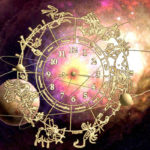What is 1st House in Vedic Astrology?
The first house is where our journey of life begins & also where it completes. It is known as the house of self or Ascendant. Any planetary placement here gets pronounced in your personality.
The First house in the birth chart is the house of self. It is home to our Ascendant or rising sign and is associated with self-image, our style of initiation and how we are perceived by others. You can think of it as your first impression. Any planetary placement within the First House will be more pronounced in the personality of the individual.
- The first house starts the worldly soul journey, it refers to the very beginning of our existence and our early environment of our life. It is also referred to as Tanu Bhava, which shows our physical features and sexual appeal.
- It represents the person we are going to become and present yourself. It influences how we become both from inside and outside.
- The first house makes us unique from others, it is like a window to your general outlook towards life, which has a lot to do with the choices you make and in turn affect the future course of events, appearance, manifestation power, ideas or creativity, inner strength and will power.
The fundamental principles of Vedic Astrology. Here’s a breakdown of some key points regarding the 1st house (Ascendant) in Vedic Astrology:
- House of the Self (Ascendant): The 1st house, also known as the Ascendant or Lagna, is indeed considered the house of the self. It represents the individual’s personality, physical body, and how they present themselves to the world.
- Significance of the Ascendant: The Ascendant is determined by the zodiacal sign rising on the eastern horizon at the exact time of an individual’s birth. This point is crucial as it sets the stage for the entire birth chart and influences various aspects of the person’s life.
- Association with the Sun: The 1st house is associated with the Sun because it is where the Sun is rising at the time of birth. This connection holds symbolic importance as the Sun is often seen as a symbol of the self, vitality, and life force.
- Crucial and Lasting Impact: The 1st house is considered highly significant because it represents the beginning of an individual’s life journey. Its placement in the birth chart can indeed have a lasting impact on various aspects of the person’s life.
- Inside and Outside: The 1st house is often described as the sum total of both the inner and outer self. It reflects not only the physical appearance and demeanor of an individual but also their inner growth, perception of reality, and the way they navigate the world.
Understanding the characteristics of the 1st house and the Ascendant is foundational in Vedic Astrology. It serves as a starting point for analyzing the entire birth chart and provides valuable insights into an individual’s nature, potential, and life path.
Ascendant in Birth Horoscope
The multifaceted nature of the First House in astrology, particularly in Vedic Astrology. It goes beyond the physical attributes and highlights the various aspects associated with this fundamental house. Here are some key points that stand out:
- Physical Attributes and Health: The First House is indeed associated with physical features, health, and overall well-being. The mention of the Ascendant lord’s placement in the 1st house influencing health and longevity aligns with the idea that the Ascendant is a vital point in the chart.
- Childhood and Self-Realization: The emphasis on the 1st house as a reflection of one’s childhood and the journey of self-realization is noteworthy. The Ascendant or rising sign is viewed as a filter through which individuals experience and navigate their lives.
- Predictive Principles: The concept of reading matters of a house through the house of the same number is a valuable predictive principle. This technique provides a nuanced understanding of the interconnectedness of different areas of life in astrology.
- Partnerships and Deeper Significance: The insight into the 1st house as the bhavat bhavam for the 7th house sheds light on the deeper significance of partnerships, alliances, and the mirror-like qualities represented by the 7th house. It aligns with the idea that these aspects are intricately linked to one’s own personality.
- Psychological Cues in Vedic Astrology: The emphasis on looking into deeper psychological cues rather than just physical values when analyzing a horoscope is a valuable perspective. It aligns with the holistic nature of Vedic Astrology, which encompasses not only external events but also the internal, psychological, and spiritual dimensions of an individual.
In Vedic Astrology, the houses indeed hold a rich tapestry of meanings, and your explanation provides a comprehensive overview of the depth and complexity associated with the First House and its interconnectedness with other areas of life.
1st House in Time-based Astrology: Prashna Chart is analyzed by keeping the 1st House in mind and its relationship with the house of Prashna. The analysis is done based on the planet that the Ascendant represents. Hence, the Astrologers take everything into consideration when analyzing the Ascendant of a birth chart.
- If the 1st house has the signs rising with its head in the Prashna Kundali namely, ifGemini, Leo, Virgo, libra, Scorpio and Aquarius are in Ascendant, and Moon is in 1st house then there is a positive outcome. AI can help in this.
- If the Prashna Chart has auspicious lagna, then the outcome will be positive depending on other factors.
Insights into Vedic Astrology and the significance of houses, particularly the 1st house, align with the traditional principles of this ancient astrological system. Here are some key points that stand out:
- Houses as a Gateway: Describing houses as a gateway into greater astrological curiosity is a wonderful way to highlight their importance. Each house represents specific areas of life, and the planetary placements within these houses offer valuable insights.
- Role of Planets within Houses: Acknowledging that each planet, based on its movements, resides within a specific house is fundamental to Vedic Astrology. This placement is crucial for understanding not only the individual’s personality but also their interaction with the world.
- 1st House in Ancient vs. Modern Context: The historical perspective on the 1st house being associated with pride and ego in ancient times and its modern interpretation as a representation of the ability to fulfill hopes and desires reflects the evolving nature of astrological interpretations over time.
- Degree of the 1st House: The emphasis on the degree of the 1st house as an indicator of the power of manifestation and commitment in life adds a nuanced dimension to astrological analysis. The degree can be seen as a measure of the strength of one’s intentions and actions.
- Significance of the Ascendant Lord: Recognizing the Ascendant lord as always benefic and having the strength to fulfill desires is in line with the idea that the Ascendant is a crucial point in the chart, representing the individual’s overall approach to life.
- Influence of Benefic Planets: Highlighting the positive impact of natural benefics like Jupiter, Venus, Waxing Moon, and Mercury when placed in the 1st house, and when unafflicted, is consistent with the idea that these planets bring favorable energies related to health, wealth, and intelligence.
Your summary provides a comprehensive view of the intricate dynamics involved in Vedic Astrology, emphasizing the role of houses, planets, and their placements in shaping an individual’s life and experiences.
Chinese Astrology
Chinese Astrology doesn’t exactly follow the same principles as Western or Vedic Astrology. In Chinese Astrology, there isn’t a concept of houses like in Western astrology. Instead, the focus is on the interaction between twelve animals representing different years and one of the five elements (Wood, Fire, Earth, Metal, Water). The combination of the animal and the element gives a 60-year cycle.
While Chinese Astrology does delve into fate and destiny, it typically doesn’t use houses in the way that Western astrology does. The concept of a “Ming Palace” and the differentiation between heavy and light responsibilities are not directly aligned with traditional Chinese astrological practices.
In Chinese Astrology, the emphasis is more on the animal sign and its associated characteristics, as well as the interaction with the element for a specific year. These combinations are believed to influence one’s personality, relationships, career, and overall life path.
If you’re interested in exploring your fate or destiny in Chinese Astrology, it’s more common to look at the interaction between your Chinese zodiac animal and the element associated with your birth year. Each animal is believed to have specific qualities, and the element adds another layer of influence.
It’s always fascinating to explore different astrological systems, and Chinese Astrology offers a unique perspective on how cosmic forces might shape our lives. However, the concepts and terminology might differ significantly from those in Western or Vedic Astrology.
Areas Represented by the 1st House
The 1st House symbolizes various aspects, encompassing identity, self, personality, body, physical appearance, strength/weakness, looks, ego, presentation to the world, beginnings, early childhood, limbs, birthplace, fame, strength, age, hair, livelihood, stigma, skin
Role of the 1st House in Astrology
The first house, also known as the Ascendant or Lagna, is a fundamental house in Vedic astrology, and other houses are dependent on this house. It is the house that was rising on the eastern horizon at the time of your birth.
It gives the clue as to which direction our life is heading. It is the house that represents the projection of self to the outer world. We can know from the first house, whether a person is a leader or a follower. Also the physical attributes like appearance, physical stature, strength/weakness of your body, vitality, health, resistance power etc. can be known.
The 1st House in Astrology Represents Your Personality
The essence of the first house in astrology, especially in terms of its influence on an individual’s personality and physical traits. Here are some key points to highlight:
- Personality Traits and Physical Appearance: The first house, often associated with the Ascendant or Rising sign, is indeed a significant factor in shaping an individual’s personality. It encompasses physical characteristics such as appearance, height, weight, and color, which contribute to the overall impression a person makes.
- Temperament: The temperament of an individual is also linked to the first house. The zodiac sign rising in the first house, known as the Ascendant or Rising sign, plays a crucial role in determining one’s temperament, demeanor, and approach to life.
- Unique Impact of Each Zodiac Sign: Every zodiac sign is indeed unique, and the sign rising in the first house carries its own set of attributes. The characteristics associated with the Ascendant sign influence the individual’s behavior, preferences, and overall outlook on life.
- Absorption of Zodiac Sign Attributes: As you mentioned, individuals automatically absorb the attributes of the zodiac sign associated with their first house. This absorption contributes to the uniqueness of each person’s personality, as influenced by their Ascendant sign.
Understanding the characteristics of the first house and the Ascendant sign is fundamental in astrology. It provides a starting point for analyzing an individual’s chart and offers valuable insights into their inherent qualities, physical appearance, and overall approach to life.
The 1st House Shows Your Early Childhood
The 1st house rules over your early childhood. As the first house is the foundation of a chart, so does your childhood. According to research, brain development happens rapidly in the early years of life. Early Childhood development sets the foundation for your personality, intelligence, behavior, and capacity to learn. The first house shows the environment in which you are born. The way you are raised and nourished is seen in this house. Apart from what you inherit from your past lives, the thought process influenced by parents and society in childhood will impact a lot. The circumstances and habits formed in the early stage of life will have a lasting influence on adult life.
The 1st House Denote Beginning
The foundational and initiating nature of the first house in astrology. Here are some key points to emphasize the significance of the first house:
- Representing the Beginning: The first house is often referred to as the house of self or the Ascendant. It signifies the starting point of an individual’s life journey. The zodiac sign rising in the first house, known as the Ascendant or Rising sign, sets the stage for the entire astrological chart.
- Initiative and Actions: The first house is closely associated with personal initiative and actions. It reflects how individuals approach life, take on challenges, and express their individuality. The characteristics of the Ascendant sign influence the way people initiate and engage with the world.
- Childhood and Early Life: As you mentioned, the first house is also connected to the beginning of life, representing childhood and early experiences. It provides insights into one’s formative years, shaping the foundation for future development.
- New Projects and Business Ventures: Initiating new projects, ventures, or businesses falls under the domain of the first house. It symbolizes the individual’s drive to start something new and take on challenges in various aspects of life.
- Physical Body and Appearance: The first house not only represents the beginning of life but also the physical body and appearance. It influences how individuals present themselves to the world, affecting their overall demeanor and style.
Understanding the dynamics of the first house is crucial in astrology, as it forms the basis for interpreting the entire birth chart. The characteristics associated with the first house provide valuable insights into an individual’s personality, motivations, and the way they navigate the world around them.
The 1st House Represents Head
The traditional associations of the first house in astrology, both in terms of its connection to the physical body and its symbolic representation in various aspects of life. Here are some key points to highlight the significance of the first house:
- Physical Body and Health: The first house is indeed associated with the head and brain region in the body. Afflictions or planetary influences in the first house may be considered as potential indicators of health issues related to the head.
- Symbolic Representation: The first house symbolically represents the head not only in a physical sense but also in broader contexts. It can represent the head of an organization or the head of a family, reflecting leadership and authority.
- Root and Foundation: As you mentioned, the first house is linked to anything associated with the root. It represents the foundation or starting point in various areas of life. In dealing with any entity, whether it’s a company, group, or family, the head or leader is the initial point of contact.
- Leadership and Authority: The first house, being associated with the head, is often linked to qualities of leadership and authority. It reflects the individual’s capacity to take charge, initiate actions, and be at the forefront of endeavors.
- Understanding and Dealing: The idea that to understand or deal with anything, the first thing we need is the head, emphasizes the foundational nature of the first house. It suggests that the qualities represented by the first house are essential in approaching and navigating various life situations.
In summary, the first house holds a multifaceted significance, encompassing both physical and symbolic representations. Understanding its role in astrology provides valuable insights into an individual’s health, leadership qualities, and foundational aspects of their life.
Significance of different planets in the first house:
Sun in 1st House: The presence of Sun in the 1st house of your horoscope will infuse you with immense energy, strong vitality and remarkable self-confidence. However, it may also add arrogance and domination to your nature. Your strong inner self makes you unbeatable in any assigned task and you are always ready to take responsibilities. A positive Sun placed in this house also indicates trouble free childhood.
Moon in 1st House: The Moon in the 1st house blesses you with a charming and caring personality. But you may lack confidence and most of the time may remain indecisive about the things. You think a lot and always focus on pleasing others. You are as fickle as a child and wear emotions on your sleeves.
Jupiter in 1st House: Jupiter in this house is the best placement and shows someone with generous heart, the person possesses a positive approach towards life and is never frightened of adversities. However, sometimes the natives act too optimistic ignoring important details. Jupiter is also the planet of expansion and indicates that the person will enhance his personality to a great extent.
Venus in 1st House: Venus is the planet of luxury, compassion and aesthetics. When Venus owns the 1st house of the zodiac, the native pleases everyone with his charming personality. They may not appreciate hard work and may show the sign of laziness and sensual indulgence. People feel naturally attracted towards you and opportunities come easy to you.
Mars in 1st House: The fiery and energetic Mars in the 1st house of the horoscope often adds impulsiveness and haste to the native. The native thinks less and act more which prove harmful sometimes. Mars is the warrior and he acts abruptly without thinking much. It blesses the native with energy, courage, strong will power and endurance if placed favorably. Aggression and haste is the main trait of such a native.
Mercury in 1st House: With Mercury in the 1st house you are someone with a curious and intellectual bent of mind. These natives love to communicate and adjust in any situation easily. They have good sense of humour and are generally favourite of all.
Saturn in 1st House: If you have Saturn in the 1st house, you have probably tall and thin physique. You are not easy going and have serious approach towards life. People consider you an introvert which you don’t mind in fact. You are a responsible, loyal and a duty bound person. You may face tough childhood but will certainly succeed in life.
Rahu in 1st House: With Rahu in the 1st house in Kundli there is a zeal for life and a strong desire to remain socially active. You love attention and wish to be admired widely. A well placed Rahu bestows an impressive personality and you may proceed further in life in rather in an unconventional manner. An afflicted Rahu is not considered good here and invokes an illicit behavior in the native. You may fall victim of drugs and alcohol unless there is an association of another benefic planet.
Ketu in 1st House: With Ketu in the 1st house, you are a unique character with some inherent weird obsession. These natives are very well aware of their flaws and have magnetic personality. If an adverse Ketu influences your 1st house, you are likely to face health issues and low vigor in life.
From the Classics of Astrology
The first house (Lagna) in Vedic astrology, reflecting its comprehensive role in the astrological chart. Here are some key points that stand out:
- Physical Attributes and Body Parts: The first house is associated with body parts, hair, and a disease-free body. This aligns with the traditional understanding of the first house governing physical appearance and well-being.
- Significance of the Self: The first house is fundamentally the house of the self, representing an individual’s body, physical appearance, and overall identity. It is governed by the sign of Aries in the Kaal Purush Kundali, with Mars being its natural ruler.
- Life Events and Experiences: The first house is seen as indicating a range of life events and experiences, including good and bad results, moments of happiness and sadness, childhood issues, and the potential for residence in either the native country or a foreign land.
- Name, Fame, and Reputation: The first house plays a significant role in determining one’s name, fame, and reputation in society. It is also linked to higher learning, higher studies, long journeys, and the circumstances around one’s birth.
- Mental and Emotional Aspects: The first house is associated with temperament, peace of mind, happiness, sorrow, and various mental and emotional factors. It influences an individual’s outlook on the world, as well as their attitude towards others and their money.
- Mundane and Horary Astrology: In Mundane Astrology, the first house extends its influence to the entire country, signifying the people and state. In Horary Astrology, the first house represents the querent, the person asking the question.
Your explanation provides a thorough understanding of the diverse facets of the first house in Vedic astrology, illustrating its significance in different branches of astrology and its influence on various aspects of an individual’s life.
Inter-Connectivity of First House with Other Houses
The multifaceted nature of the first house in Vedic astrology, providing insights into various aspects of life. Here are some key points that stand out:
- Loss of Family Wealth and Health: The first house is associated with the loss of family wealth, indicating that if one is using family resources for personal health, it may lead to a reduction in overall wealth. It also highlights expenditures related to hospital bills, court fees, and other additional expenses, emphasizing the connection between health and financial well-being.
- Gain for Siblings and Self: The first house represents gains for siblings and oneself through skills, efforts, and communication. This aligns with the idea that personal abilities and effective communication can contribute to individual success and the well-being of siblings.
- Career, Reputation, and Social Status: The first house is linked to one’s career, reputation, and social status. It reflects how an individual is perceived in society and the impact of their efforts on their professional life.
- Children and Family Health: The first house extends its influence to various aspects of family life, including the higher education of children, the health of in-laws and spouse, and the recovery from diseases. It also signifies the long-distance travels, luck, and loss of enemies related to one’s children.
- Spouse’s Spouse (Self), Appearance, and Interests: The first house represents the individual’s own self (spouse’s spouse), along with the appearance and interests of the spouse. It plays a role in determining the health of in-laws, recovery from diseases, and the ease of recuperation.
- Speculation in Father’s Profession and Finances: The first house is connected to speculation in the father’s profession, reflecting the potential for financial gains through investments or speculative activities. It also represents the fortune of the father and the financial outcomes of expenditures.
- Happiness through Reputation and Efforts: The first house is associated with personal happiness derived from one’s reputation in society. It also represents the happiness of superiors or bosses through the individual’s skills and efforts.
Overall, your explanation showcases the intricate web of connections that the first house weaves, touching on various aspects of an individual’s life, family, career, and well-being.
First House as per Lal Kitab
The Lal Kitab perspective provides valuable insights into the significance of the first house, emphasizing its role in health, courage, and various aspects of an individual’s life. Here are some key points to highlight:
- First House in Lal Kitab: In Lal Kitab, the first house is considered the “Throne,” representing health, courage, valor, working capacity, joy and sorrow, body parts (such as neck and throat), sitting arrangements, and aspects of royal living or government.
- King of All Houses: The first house is regarded as the king of all houses in Lal Kitab, indicating its pivotal role in influencing other houses. The seventh house is seen as the “Home Minister,” and the combination of planets in the first and seventh houses is considered significant.
- Impact of Planets in the First House: Having more than one planet in the first house is viewed with caution in Lal Kitab. This combination is thought to create confusion and may not provide favorable results. The analogy of kings and ministers illustrates the potential complexities in such situations.
- Transits and Planetary Effects: Lal Kitab suggests that if any planet occupies the first house, it first harms its inimical planet and later delivers results accordingly. Transits of inimical planets through the first house are believed to impact the corresponding inimical planets.
- Representation of Self: The first house, being associated with the “Throne,” represents how individuals present themselves to the outer world. It signifies an individual’s actions, reactions, and daily routine tasks, providing insights into their overall demeanor.
Understanding the Lal Kitab perspective on the first house adds a unique dimension to astrological interpretations, highlighting the dynamic relationships between planets and their impact on various aspects of an individual’s life.
Fundamentals of the first house
- Vedic name: Tanu Bhava
- Natural Ruling Sign and Planet: Aries and Mars
- Associated body parts: Head, upper portion of face and whole body
- Relations in the first house: Yourself
What are The Areas of Life Ruled and Governed by The 1st House
A succinct and accurate representation of the significance of the 1st House in astrology. Here are some key points highlighted in your statement:
- Personality and Physical Appearance: The 1st House is closely associated with an individual’s personality, encompassing traits, behavior, and overall demeanor. It also influences physical appearance, including features, body structure, and other external characteristics.
- Character and Temperament: The 1st House reflects an individual’s character and temperament. It provides insights into how a person approaches life, deals with challenges, and interacts with the world.
- Self-Identity: The 1st House is often referred to as the house of self. It represents the core essence of an individual, indicating self-identity and how one perceives oneself.
- Strengths and Weaknesses: Examination of the planets placed in the 1st House can reveal information about an individual’s strengths and weaknesses. Planetary influences in this house play a role in shaping various aspects of the person’s character and life.
- Health: The 1st House is linked to an individual’s health. Afflictions or favorable planetary placements in this house can provide insights into a person’s overall well-being and vitality.
- Significance in Determining Destiny: The 1st House holds immense significance in determining the destiny of an individual. The placements of planets in this house contribute to shaping the life path, experiences, and outcomes for the native.
Studying the planets in the 1st House is indeed a crucial aspect of astrological analysis, offering valuable insights into the individual’s nature, tendencies, and potential life trajectory. The 1st House serves as a foundation for understanding various facets of a person’s life and plays a key role in the overall astrological chart interpretation.
The Signs and Planets Associated With The 1st House
The 1st house is ruled by Aries sign and Mars is the lord of the First House. This is the best house for Jupiter, Sun, Moon, Mars, Mercury but weak for Venus and Saturn.
What are The Effects of The Right Combination of Planets in The 1st House?
The 1st House in Vedic astrology and how the planetary combinations within it can significantly impact an individual’s life. Here are some key points highlighted in your statement:
- Positive Influence of Planets: A favorable combination of planets in the 1st House is seen as a positive indicator that can propel an individual to great heights. This implies that beneficial planetary placements in the 1st House can contribute to a person’s success, achievements, and overall well-being.
- Impact of Malefic Planets: Conversely, if the 1st House is inhabited by malefic planets, the individual might face challenges and difficulties in life. Malefic planetary influences in this house can create obstacles, struggles, and hardships for the native.
- Significance of Sign and Planetary Combinations: The specific sign and planetary combinations in the 1st House are critical factors in determining the individual’s destiny. The characteristics, strengths, and weaknesses associated with the planets and signs present in the 1st House play a crucial role in shaping the person’s life path.
- Birth Chart Dynamics: The birth chart, with its unique combination of signs and planets in the 1st House, provides a personalized map of an individual’s strengths, challenges, and potential life trajectory. A skilled astrologer can analyze these factors to offer insights into various aspects of the native’s life.
In Vedic astrology, the 1st House is often referred to as the Ascendant or Lagna, and its condition is foundational in understanding an individual’s overall horoscope. The study of the 1st House and its planetary combinations is an essential component of astrological analysis, guiding individuals toward a better understanding of their strengths and challenges in life.
What Picture Does the 1st House Project for Future Prediction?
The significance of the 1st House in astrology, especially in terms of its influence on an individual’s choices, preferences, and general attitude in life. Here are key points highlighted in your statement:
- Influence on Choices and Preferences: The 1st House is instrumental in shaping an individual’s choices, preferences, and overall attitude toward life. The planetary positions and their influences in this house play a crucial role in determining the inherent characteristics and tendencies of the person.
- Cosmic Blueprint: The concept of a cosmic blueprint aligns with the idea that the positions of planets in the 1st House contribute to an individual’s unique characteristics and life path. The birth chart, with its emphasis on the 1st House, serves as a personalized map that astrologers use for analysis.
- Information for Future Predictions: Astrologers often focus on the 1st House when conducting astrological analyses and making future predictions. The planetary combinations in this house provide insights into potential miseries and misfortunes that may unfold in the individual’s life.
- Foundation for Astrological Analysis: The condition of the 1st House, often referred to as the Ascendant or Lagna, is foundational in astrological analysis. It sets the stage for interpreting the entire birth chart, guiding astrologers in understanding the individual’s inherent traits, strengths, and challenges.
- Important for Future Predictions: Astrologers consider the 1st House as a key factor when making future predictions. The planetary influences in this house can indicate the likely course of events and challenges that an individual may face in the future.
In essence, the 1st House serves as a critical component in astrological analyses, offering valuable insights into an individual’s character, choices, and potential life path. Its influence on future predictions underscores its importance in guiding individuals and astrologers alike.













